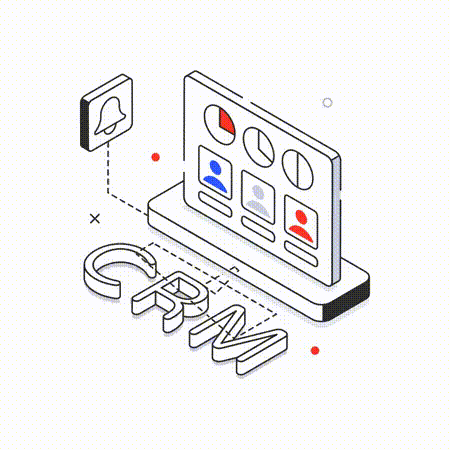
Comprehensive CRM Solutions
At Odidor, our CRM solutions enhance customer interactions through streamlined processes and effective data management. By integrating all customer touchpoints into a unified system, we empower organizations to build strong relationships, improve customer satisfaction, and drive sales growth.

Our CRM solutions are tailored to meet the specific needs of various industries, providing tools for sales management, marketing automation, and customer service. With a focus on enhancing productivity and insight-driven decision-making, our CRM systems help organizations effectively manage their customer relationships.
We specialize in implementing and customizing CRM platforms that align with your business processes, ensuring seamless integration with existing systems. Our services include data migration, user training, and ongoing support, helping your team make the most of your CRM investment.
Additionally, our CRM support services provide continuous optimization, enabling businesses to adapt to changing customer needs and market conditions. Our expert team is dedicated to maximizing your CRM's capabilities, keeping your customer interactions agile and competitive.
Our CRM Development Expertise
Our CRM expertise enables organizations to implement effective solutions that enhance customer engagement, streamline workflows, and drive business growth.
Key Considerations for Selecting an ERP Framework:
Choosing the right ERP framework for your content management system (CMS) involves thoughtful consideration of various factors that align with your organizational goals. Here are essential factors to guide your selection process:
- • Business Size and Growth Potential: Opt for an ERP framework that not only addresses your current CMS needs but can also scale to accommodate future growth and increased content demands.
- • Customization Options: Assess whether the ERP framework allows for customization to align with your specific CMS workflows, content types, and user interactions.
- • Cost Analysis: Consider the total cost of ownership, including licensing fees, implementation costs, hosting expenses, and ongoing support, to ensure it fits within your budget constraints.
- • Technical Resources: Evaluate your organization's technical capabilities or whether you'll need to engage external experts for implementation, customization, and maintenance of the ERP system.
- • Integration with Existing Tools: Ensure the ERP framework can seamlessly integrate with your current CMS platforms and other essential software like CRM, analytics tools, and marketing automation systems.
- • Data Protection Measures: Select a framework that offers robust security features to protect sensitive content and user data from unauthorized access and breaches.
- • Support and Community Resources: A strong user community and responsive vendor support can provide valuable resources for troubleshooting, training, and sharing best practices related to CMS and ERP usage.
